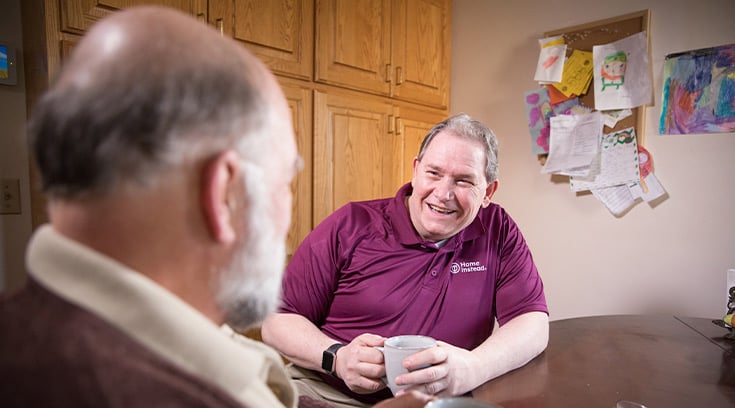Developing a final years plan may seem overwhelming, but it really boils down to one word: communication. Talking is among the most important aspects of this plan, according to experts from Dignity Memorial® -- a funeral and event planning organization – and Home Instead®. Communicating with professionals and family can help ensure important elements of a plan are in place.
Following are key aspects of a plan you might consider and the individuals who may be able to help:
Consult with an attorney. An estate planning attorney can help you and your older loved ones determine what documents need to be in place, such as a power of attorney. In general, power of attorney gives individuals the authority to act for another person in specified or all legal or financial matters. Most often, if a power of attorney is durable, it remains valid and in effect even if you become incapacitated and unable to make decisions for yourself. Generally, if a power of attorney document does not explicitly say that the power is durable, it ends if you become incapacitated.
A medical power of attorney, on the other hand, is generally a document that allows individuals to designate a trusted family member, friend, or other individual to make medical decisions in their place in the event they become unconscious or mentally incapable of making those decisions for themselves.
The person designated to make medical decisions on another individual’s behalf is oftentimes called an agent. The agent is given broad authority to make any health-care decisions the individual could have made if he or she were not incapacitated, unless the individual specifically restricts the agent’s authority.
A will is a document many people use to determine how property will be distributed. Sometimes, a will contains advance directives that may include a living will to document medical wishes at the end of life.
Locate a financial planner. Consulting a financial expert could help ensure a plan is in place that provides the funds for a full and fulfilling life. A financial planner may be able to provide guidance on financial topics such as retirement planning, insurance concerns, diversification of your portfolio and your investments, estate documents in case of incapacitation or death, and tax strategies.
Find a funeral director. A funeral director can assist you in planning and building a funeral that honors your loved one’s wishes, while fitting within your budget. These professionals can help customize your plan to your budget. Dignity Memorial's location finder can help you find a funeral home in your area.
Research resources that can support final years’ preferences. If a goal is to stay at home for as long as possible – and even to die at home – you can find out what’s available in your community to help maintain independence for as long as possible. Contact your local Home Instead office to discuss home care options.
Confer with an aging-in-place specialist. Many people want to age at home, but their homes are not equipped to help them do that. This home safety checklist can help identify areas in the home that are potential pitfalls.
Tie up loose ends. Relationship issues and disagreements can put a damper on any end-of-life plan. Tying up loose ends in the final years of life can be freeing and allows a focus on making the most of each day. Ask for forgiveness to repair a relationship, reconnect with old friends and spread a little kindness throughout your world.
It’s never too late or too early to start a plan. Ninety percent of adults in the Home Instead survey agree you are never too young to start planning for your final years.
Personalized Senior Care





